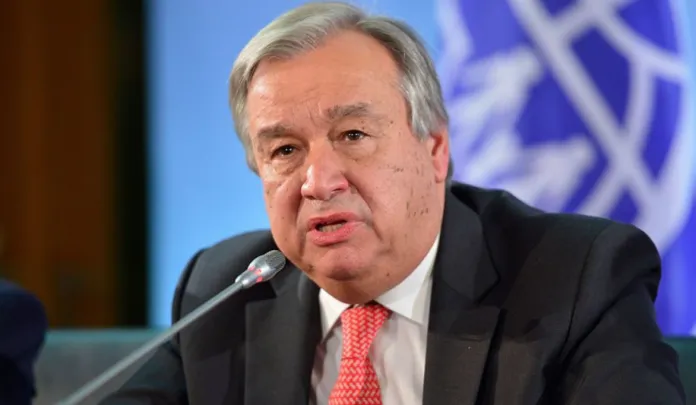Introduction
In the wake of Venezuela’s recent presidential election, the Secretary-General of the United Nations, António Guterres, has issued a call for total transparency in the vote-counting process. This appeal for openness comes amid growing concerns and disputes over the legitimacy of the election results. Guterres’s request emphasizes the need for a clear and independent electoral process to ensure the true expression of the Venezuelan electorate’s will. This article delves into the details of the Secretary-General’s statement, the context of the Venezuelan elections, and the reactions from various stakeholders.
Background on the Venezuelan Presidential Election
Election Results and Controversies
On Sunday, the Venezuelan presidential election concluded with Nicolás Maduro being declared the winner for a third consecutive term. According to the official results released by the National Electoral Council (CNE), Maduro secured 51.2% of the votes, while his main opponent, Edmundo González Urrutia, received 44.2%. The outcome has been marred by allegations of electoral fraud and irregularities, prompting significant controversy both within Venezuela and internationally.
Role of the National Electoral Council (CNE)
The CNE, which has been accused of bias due to its pro-government stance, announced Maduro’s victory after processing 80% of the votes. The official figures have been met with skepticism from the opposition and various international observers, who have raised concerns about the integrity of the electoral process. The CNE’s handling of the vote count and the release of results have become focal points in the debate over the election’s legitimacy.
António Guterres’s Call for Transparency
Statement from the UN Secretary-General
On the day following the election, Stéphane Dujarric, spokesperson for Secretary-General António Guterres, issued a statement urging for full transparency in the vote-counting process. Guterres’s appeal is directed towards ensuring that the election results are published in a timely manner and that a detailed breakdown of the results by polling stations is provided. The Secretary-General stressed that electoral authorities must carry out their duties independently, free from external interference, to truly reflect the will of the electorate.
Importance of Independent Electoral Authorities
Guterres emphasized the critical role of independent electoral authorities in maintaining the integrity of the election process. The UN Secretary-General’s call for transparency aligns with broader international standards for democratic elections, which require that all aspects of the voting and counting processes be conducted with openness and accountability. This approach is fundamental to ensuring that election outcomes are credible and accepted by all parties involved.
Reactions and Implications
Opposition and International Response
The Venezuelan opposition, led by figures such as María Corina Machado and Edmundo González Urrutia, has rejected the election results, citing widespread fraud and irregularities. The opposition claims that the CNE’s handling of the election undermines the democratic process and calls for a thorough investigation into the discrepancies. The international community, including the Carter Center, has also expressed concerns about the transparency and fairness of the election.
The Carter Center’s Involvement
The Carter Center, an American non-profit organization dedicated to promoting democracy and human rights, was invited to observe the Venezuelan elections. Following the election, the Center called for the immediate release of the voting records to complete its assessment of the electoral process. The organization’s request highlights the need for transparency and detailed data to ensure a comprehensive evaluation of the election’s fairness.
Analysis of the Current Situation
Electoral Integrity and Public Trust
The call for transparency by the UN Secretary-General and the Carter Center underscores the importance of maintaining public trust in the electoral process. Transparency in vote counting and the publication of detailed results are essential for validating election outcomes and addressing any potential concerns about fraud or manipulation. Ensuring that electoral authorities act independently and without interference is crucial for upholding democratic principles.
Potential Consequences
The response to these calls for transparency will likely have significant implications for the political landscape in Venezuela. If the CNE complies with the requests and provides the detailed voting records, it could help address some of the criticisms and restore confidence in the election results. Conversely, continued lack of transparency could exacerbate existing tensions and lead to further disputes and unrest.
Conclusion
António Guterres’s call for transparency in the Venezuelan presidential election is a critical step towards ensuring the credibility of the electoral process. As the international community and various stakeholders await further developments, the emphasis on openness and independent oversight remains central to resolving the ongoing controversies and upholding democratic values in Venezuela.


